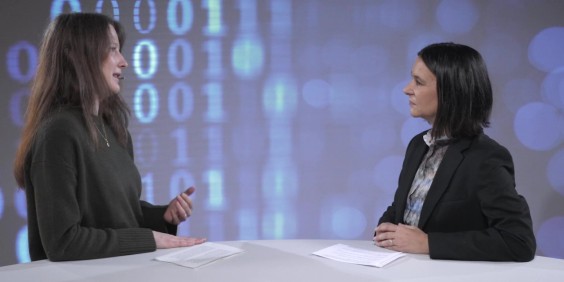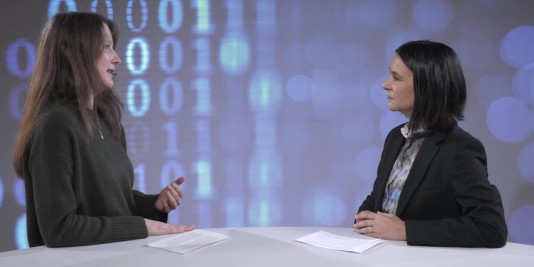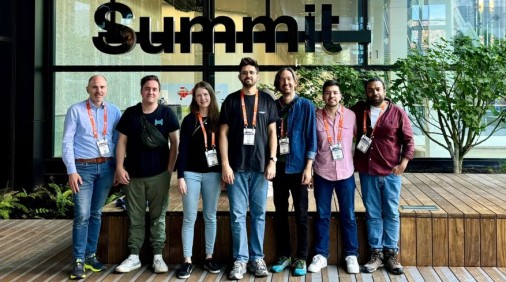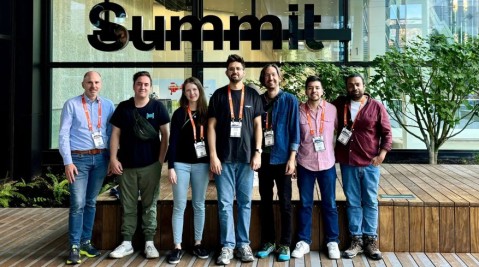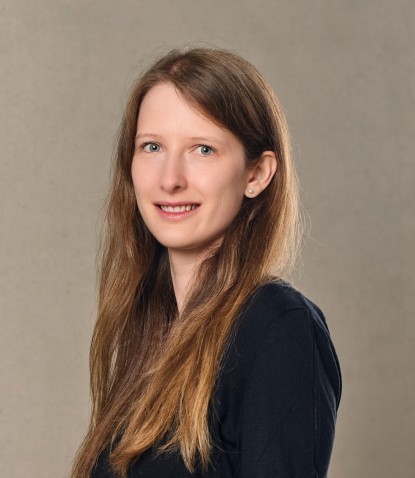New at the Department: Professor Simone Schaub-Meyer
Image and Video Analysis
2025/02/26
Simone Schaub-Meyer has been Professor of Image and Video Analysis at the Department of Computer Science since February. The 35-year-old scientist completed her doctorate at ETH Zurich, and in her dissertation, which was awarded the ETH Medal, she developed innovative methods for motion visualisation and video image interpolation.

After completing her doctorate, Simone Schaub-Meyer moved to TU Darmstadt, initially as a postdoctoral researcher in Professor Stefan Roth's Visual Inference Lab, later becoming head of the independent junior research group ‘Image and Videoanalysis’. Schaub-Meyer is also a member of the Hessian Centre for Artificial Intelligence – hessian.AI. She considers her most important scientific milestone to date to be her acceptance into the Emmy Noether Programme of the German Research Foundation. We asked Professor Schaub-Meyer about her field of research and her plans.
Why should students be interested in your topics? What is exciting about your topics?
Many of the current successes in AI are being achieved with more and more data and computing power, but this scaling is not infinite or sustainable. In addition, we have more and more points of contact with AI in our everyday lives, where the robustness or traceability of predictions are highly relevant. We address these highly topical issues with our research into efficient, robust and comprehensible methods in the field of image and video analysis.
Interdisciplinarity is a top priority at TU Darmstadt. Where are there interfaces with other Research Groups in your field of work?
We develop AI methods that do not exist in isolation, but interact directly with people and are used by them. They are therefore inextricably linked to issues from the fields of cognitive sciences, psychology and ethics. On the one hand, the design of intelligent systems can benefit from an in-depth understanding of human thought. On the other hand, the close interaction between AI and humans raises numerous ethical questions. These include topics such as bias, fairness, data protection and responsibility. Increased explainability and transparency can help people to better understand the decisions and suggestions of AI, but also to improve them if necessary
Which TU Department would you like to spend a day in? Why?
Physics, to find out more about the TURM Observatory and how the impressive images are created.
If I were a student today, I would …
… do a lot of things the same way, but the technological developments of the last few years have already changed student life a lot. This makes it all the more important to engage in social, not just virtual, dialogue with fellow students and to focus on core skills such as critical thinking and problem solving.
The best balance to a stressful working day is …
… anything that takes your mind off things and makes you feel good. Ideally it's exercise and fresh air, but sometimes it's just listening to music or drinking coffee.


